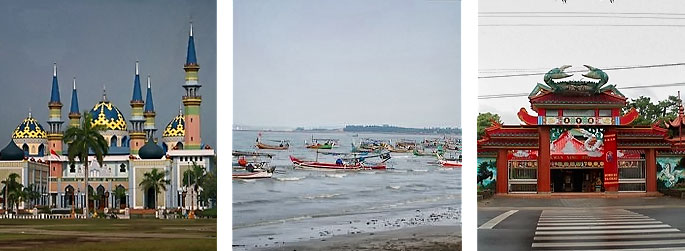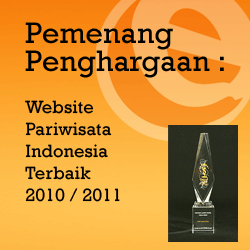Tuban

Tuban today is a small, sleepy town on the north coast of Java, about 90 kilometres west of Surabaya. Four hundred years ago, however, it was one of the island's principal seaports, active in the spice trade and supporting a large number of foreign merchants, especially Chinese.
In fact, since the earliest historical times, Tuban was one of East Java's main links to the outside world. Early records of Chinese visitors to the court of Majapahit state that the first stop was Tuban, from where sailing ships would proceed to Gresik and Surabaya. When Kublai Khan despatched his punitive expedition to capture King Kertanagara of Singosari in the late 13th century, the fleet landed at Tuban, before venturing inland.
From the beach near the old harbour a long and narrow promontary, partially man- made, juts out into the sea, effectively dividing the shallow bay and providing shelter for the numerous small fishing boats which crowd the harbour. A late afternoon stroll along the beach evokes a strong feeling of times past. There are stories of pirates, shipwrecks and sunken treasure Iying just a few kilometres offshore. Tuban's principal attractions are connected with its role as an historical port, especially during the period of the decline of Majapahit and the beginning of East Java's conversion to Islam.
One of the island's nine Muslim saints, or original preceptors of the Muslim religion, is buried behind the elegant Persian style Jami'q mosque and his tomb is a popular place of pilgrimage. Lying further west along the beach, not far from the town centre, is the klenteng Kwan Sing Bio, East Java's largest Chinese temple. Tuban is also a traditional centre for the production of batik, the art of decorating textiles by the wax resist process, for which Java is world famous.
Tuban batik displays its own unique style. Simple methods are preferred and the art has remained on the home industry level. The charm of Tuban batik lies particularly in its coarse, homespun cloth and natural, deep indigo dye. Centres of batik production in the Tuban area include the villages of Kerek and Bejagung.









